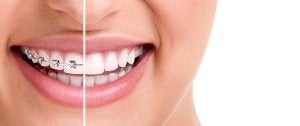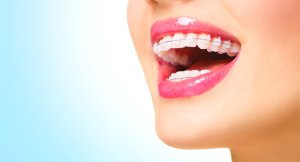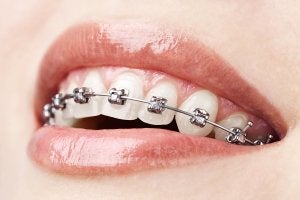-
Come meet Dr. Z!
Hello everyone!
I welcome you to Dental Heights, a family owned and operated general dental practice. My name is Dr. Zishan Bader DDS. We established this office in the summer of 2013 primarily to give the surrounding residents an affordable and up to date dental office for their family’s needs. I must tell you that these past few years have been a blast! We have made so many new friends through the many patients that have walked through our doors. Ive always emphazed a friendly professional environment where our patients feel like they are with those who truly care about the services provided.
A little history on myself:
I went to Lockport Township High School, attended undergrad and dental school at the University of Detroit-Mercy and graduated in May 2009. Ever since, Ive worked tirelessly on keeping myself updated on the latest technology, techniques, and other aspects of dentistry to give true justice to my patient’s experiences with me. I have been blessed to work alongside two great mentors– Dr. Alamdar (my father) & Dr. Shafeeq (my uncle) whom I have learned a great deal from.
I welcome you to come by and meet me personally & my wonderful staff. I can give you a tour of my office and insight on the types of treatments we offer here at Dental Heights!
-Dr. Zishan Bader DDS

-
Common Questions About Orthodontic Care
 Whether you are a parent seeking braces for a child, or are an adult seeking an improved smile, orthodontics are a safe and effective way to improve crooked or overcrowded teeth. Orthodontics can also alleviate a range of other issues, such as tooth pain or jaw issues. A clinic offering family dental care in Schaumburg will be able to provide you with more information about all of your orthodontic options, including braces and dental implants. By choosing to work with a highly rated dentist in your area, you will be sure to have a great orthodontic experience. Read on for a look at answers to common questions about orthodontic care.
Whether you are a parent seeking braces for a child, or are an adult seeking an improved smile, orthodontics are a safe and effective way to improve crooked or overcrowded teeth. Orthodontics can also alleviate a range of other issues, such as tooth pain or jaw issues. A clinic offering family dental care in Schaumburg will be able to provide you with more information about all of your orthodontic options, including braces and dental implants. By choosing to work with a highly rated dentist in your area, you will be sure to have a great orthodontic experience. Read on for a look at answers to common questions about orthodontic care. Why Is Oral Hygiene Important When I Have Braces?
Patients who receive braces are instructed to perform careful oral hygiene procedures on a daily basis. Proper oral hygiene is especially important if you have traditional wire braces. If plaque is left to sit on the wires of the braces, it can cause cavities and tooth decay. By brushing your braces, you will keep your teeth healthy during your orthodontic care.
How Can I Clean My Braces?
Many patients wonder about the specifics of taking care of their teeth when they have braces . Typically, dentists recommend that patients brush their teeth after meals, in the morning, and directly before bed. You can also use special floss threaders to make sure that all food particles are removed from your teeth and braces. In the event that you find yourself without a toothbrush, you can also rinse your mouth with fresh water.
What Do Braces Feel Like?
If you are preparing for braces, you may be wondering what the braces will feel like once they have been placed in your mouth. During each visit, your dentist will gently tighten the braces wires in order to gradually move your teeth into position. If you experience discomfort after you have your braces tightened, you can alleviate the pain using an over the counter medication, such as ibuprofen.
-
A Look at Different Types of Orthodontic Issues
 Did you know that straight teeth are more than just aesthetically pleasing? Straight teeth can actually benefit your health, which is just one more reason not to delay visiting your orthodontist in Schaumburg . When your teeth are straighter, it makes it easier to brush and floss, while crooked teeth can make it hard to reach certain areas. Orthodontics can make you feel more confident in the way you look and improve your oral health, so there’s no reason not to explore whether braces might be right for you. Keep reading for a look at different types of orthodontic issues that braces can address.
Did you know that straight teeth are more than just aesthetically pleasing? Straight teeth can actually benefit your health, which is just one more reason not to delay visiting your orthodontist in Schaumburg . When your teeth are straighter, it makes it easier to brush and floss, while crooked teeth can make it hard to reach certain areas. Orthodontics can make you feel more confident in the way you look and improve your oral health, so there’s no reason not to explore whether braces might be right for you. Keep reading for a look at different types of orthodontic issues that braces can address. Crossbite
A crossbite means that your upper teeth rest inside or outside of your lower teeth. This misalignment can make chewing, biting, and speaking difficult, and may also lead to uneven wear on the teeth. Crossbite can also cause the jaw bone to shift to the side as it grows, which can result in painful jaw conditions such as temporomandibular joint disorder. Early orthodontic treatment is best in cases of crossbite.
Underbite
If your lower teeth protrude out further than your front teeth, it’s referred to as an underbite. In extreme cases, surgery may be required to correct the position of the jaw. More often, however, orthodontic treatment can be used to improve an underbite. Braces may be able to help bring the upper teeth forward and move the lower teeth back into a proper position.
Open Bite
When the upper teeth and lower teeth do not meet when you bite down, orthodontists call this an open bite. An open bite can make it difficult to bite off food using the front teeth, and may affect speech, as well. Since the front teeth don’t receive pressure when biting down, it may cause extreme stress on the back teeth. This can cause the back teeth to wear down quickly and lead to other dental problems. If your orthodontist diagnoses you with an open bite, braces may be the right treatment option to help correct this aesthetic and functional issue.
-
A Patient’s Guide to Braces
 Getting braces in Schaumburg now can help you have a more cosmetically pleasing smile in the future. Plus, because of treatment advances, undergoing orthodontic work is easier than ever. When you keep in mind these guidelines, you can better ensure that your teeth and gums remain healthy and strong while you wear your braces.
Getting braces in Schaumburg now can help you have a more cosmetically pleasing smile in the future. Plus, because of treatment advances, undergoing orthodontic work is easier than ever. When you keep in mind these guidelines, you can better ensure that your teeth and gums remain healthy and strong while you wear your braces. Cleaning Your Teeth
Daily brushing and flossing are integral to avoiding tooth decay and gum disease. When you get braces, your dentist may advise that you make a few oral hygiene changes to protect your dental health. For one, you may need to replace your toothbrush more often. Contact between your braces and toothbrush can quickly wear out its bristles, making them less effective at scrubbing away bacteria and food particles. Two, you might have to allow yourself more time to clean your teeth and gums. Threading your floss through your wire can require a few extra minutes, as well as brushing thoroughly around each brace bracket.
Eating Meals
Wearing braces doesn’t mean that you have to overhaul your normal diet. Because food can easily catch on your brace brackets and wire, though, you may need to make a few minor alterations to your eating habits. For instance, when you eat fibrous foods, slice them into portions that you can eat with your back teeth instead of biting into them with your front teeth. You may also want to avoid sticky foods that can cling to your orthodontic equipment.
Seeing Your Dentist
Keeping up with your dental exams is crucial while you undergo orthodontic treatment. Even when you regularly brush and floss your teeth, bacteria and plaque can easily grow around your brace brackets. As a result, your teeth may be more vulnerable to tooth decay and gum disease while you undergo treatment. When you get dental cleanings, your dentist can thoroughly remove any accumulated plaque and tartar on your tooth enamel that may cause oral disease. He can also evaluate your orthodontic equipment to ensure that it is functioning as needed to move your teeth into better alignment as quickly as possible.
Reference: www.knowyourteeth.com
-
Understanding Orthodontics
The field of orthodontics focuses on the way the teeth and the jaw fit together. Improper alignment and crooked teeth can lead to huge issues in the jaw, which is why it is important to visit an orthodontist if you have any problems. Keep reading to learn more about orthodontics and how it can help you improve your smile and your oral health:
The Job of the Orthodontist
An orthodontist is a dentist who has had at least two years of additional training in the field of orthodontics. If you need orthodontic work near Schaumburg, you will visit a specialist that has the tools and the knowledge to correct your issues.
Conditions that Require Orthodontics
There are a variety of conditions that might require the attention of an orthodontist. If you have an overbite, an underbite, a crossbite, and open bite, a misplaced midline, spacing issues, or crowding trouble, you might need orthodontic help. Schedule an appointment with a dentist or an orthodontist to see if you need any special treatment to fix these issues.
Orthodontic Treatment
When you visit an orthodontist , the doctor examines your mouth to determine the right course of action for your issues. Using a series of fixed and removable orthodontic devices, the orthodontist determines the best way to correct your bite issues. These treatments can include braces, space maintainers, aligners, and lip and cheek bumpers. These appliances gradually correct your teeth and jaw issues so you can enjoy a prettier, healthier smile.
Benefits of Orthodontic Treatment
Not only does orthodontic treatment help patients get more attractive smiles, but it also offers a range of other benefits. Since crooked, misaligned teeth are hard to clean, they can increase a person’s risk for developing gum disease. With the help of orthodontic appliances like braces or aligners, though, you can straighten your teeth so it is easier to keep them clean. When the natural teeth fit properly into the mouth, they are also more likely to last for a lifetime.
Reference: http://www.colgate.com
RECENT POSTS
categories
Archives
2025
2017
2016
2015
- October (1)
- September (2)
- August (4)
- July (4)
- June (5)
- May (4)
- April (4)
- March (5)
- February (5)
- January (5)
